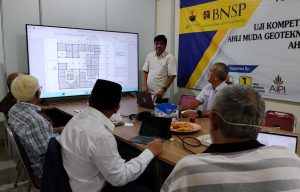By Dr Hani Al-Masri*
The Israeli elections have been and gone, and the numbers at the polls indicate that the new government will be lead by Benjamin Netanyahu and the Right. In this sense, the current situation as embodied by the stagnant status quo will not change.
In fact, the most that the new Israeli government can offer Palestinians in the form of change is lowering tax rates paid on imports in the hope of continuing security coordination with the Palestinian Authority (PA). Israel knows that it can no longer freeze the PA’s funds should it want to secure its cooperation on matters of security; the central council agreed to halt its cooperative efforts with the Israeli government during their last meeting. Many senior Israeli officials have warned of the dangers of withholding Palestinian funds out of fear that the current PA would collapse and a new anti-Israeli authority would take its place.
The second possibility is that the “Zionist camp” will succeed in forming a coalition with other parties, including right-wing religious parties, to form a new government. What will then happen is that the government will stop its freeze on Palestinian funds and perhaps will also conduct a partial settlement freeze as a prelude to the resumption of negotiations and an attempt to halt any unilateral decisions taking by the PA in the international arena. This is especially important when considering the possible lawsuits facing Israel in the International Criminal Court (ICC) with respect to crimes perpetrated by Israeli forces during their aggression on the Gaza strip last summer.
Also Read: Be Careful of the Trap of Deploying Peacekeeping Forces to Gaza
The third possibility facing the Israeli government is is that of forming a national unity government that would include all parties; however, this government would be politically paralysed and would not achieve much in terms of change and innovation. The most they could agree upon is to release frozen Palestinian assets for the sake of pre-empting any dangerous unilateral steps from the Palestinian side.
The question that seems to be of prominent importance following the Israeli election results, and has been on the minds of political circles in Washington, New York and other American cities that I have been visiting, is: Will the international community be able to force both sides to resume the negotiation process and reach a settlement in which Israel agrees to withdraw its forces based on 1967 borders? Many still believe that this is the only solution that would allow Israel to retain its sense of security while also solving the Palestinian refugee issue.
The talk here in the US, especially in Palestinian and Arab circles, revolves around questions regarding whether or not Barack Obama’s administration is daring enough to take the initiative at the end of the second period of his presidency, as most American presidents before him did. Many are eager to see what Obama will do, especially in light of certain laws restricting him, as is the case with the Iranian issue. Yet, the president has broad powers with respect to US foreign policy and many are curious to see what will happen in light of the stress experienced by US-Israeli relations in recent years. This is in light of the recent deterioration of personal relations between Obama and Netanyahu, especially following Netanyahu’s last visit and speech in Congress, which was done without the coordination and approval of the US administration.
If the US decides to work with other great powers in the world, as it did in the Iranian, Ukrainian and even Syrian cases, then one could argue that the results of the Israeli elections are not all that significant, since the international community has the ability to pressure the Israeli government.
Also Read: The Forty-Four-Days of Glory: Azerbaijan’s Struggle for Justice and Peace
It would, of course, be easier for the international community to impose their will on the Israeli government provided that the newly elected government is not too far to the Right; therefore, it is no secret at this point that the US, as well as many European and Arab countries, would be keen to see Netanyahu’s government reach its downfall. Many influential figures within his party have mentioned that there are many external factors that have been working to influence the outcome of these elections.
Many sources I have met with and spoken to indicate the presence of Russian, Chinese and European willingness, especially French in this case, to impose a solution on the parties before the situation deteriorates on the Palestinian front. In fact, the harsh reality facing Palestinians has led to an international call for a just and peaceful solution. Israeli-Palestinian relations have grown even tenser when considering Palestinian entry to international organisations such as the ICC, as well as Palestinian efforts to hold Israel accountable for its illegal occupation of Palestinian territories.
No one truly believes that the US will join the international community in its efforts to put pressure on Israel or to work to find a suitable solution that would be imposed on both parties. Yet, many still agree that if the US does not act, it would be the final nail in the coffin of a 20-year peace process and the end of we have been calling the “two-state solution”.
Many have considered the Obama administration’s appointment of Robert Malley as the man in charge of the Middle East file an indicator that potential changes might occur in US foreign policy. Malley is known to not be a member of the pro-Israeli camp in the US government per se; moreover, he has been open to integrating Hamas in the political process and has shown some flexibility on the issue at large.
Also Read: Palestine Solidarity Month: A Collective Movement for Al-Aqsa and Palestine’s Freedom
There will more than likely be an international movement calling for a solution to the conflict with the participation of the US; however, there will be US and European pressure placed on the Palestinian side to make more concessions to ensure a higher chance of success. The nature of this conflict ensures that the US and Israel share common goals, and this is in part due to the fact that the Palestinian side is weak and disadvantaged due to the occupation and politically divided on the inside. The Palestinians are rendered weaker due to these circumstances and due to other factors such as the siege that has been imposed on Gaza.
Therefore, it is necessary to give the utmost importance and attention to ending Palestinian national division and restoring unity. There needs to be a change in the old approach, or the implementation of a new approach that does not allow for the resumption of negotiations. New approaches to resolving the conflict, whether they include international and regional participation or not, could quickly work against the Palestinian people if international law and UN resolutions continue to be ignored. All parties involved in this must ensure that UN resolutions are implemented and not negotiated. More importantly, humouring the idea of Israel withdrawing the occupation in accordance with 1967 borders and potential land swaps could open the gates of hell because these land swaps would grant Israel the opportunity to annex large areas of land that it has occupied for long periods of time, which would end the possibility of creating a viable Palestinian state.
There are many actors within Palestinian and regional pan-Arab circles who are placing their bets on the outcomes of the Israeli elections or the possibility that the US administration will become more proactive in the second half of Obama’s final term; this is a fatal mistake and a trap that we must not fall into again. Placing bets on the occupation will simply result in nothing other than strengthening, legitimising and continuing said occupation, and we cannot afford to do that with the precious time that we have left.
Also Read: Hassan al-Turabi: A Controversial Thinker from Sudan
In a lecture I recently gave at Brown University, I said that there is no significant difference between the right-wing party in Israel and a coalition within the Zionist camp; public opinion on the Israeli Right is extremist and racist and represents the overwhelming majority. It imposes on rival parties the need to compete with extreme ideologies to attract the highest number of votes. This reality ultimately places a great deal of responsibility on us Palestinians to place pressure on Israel and make the occupation costly and ineffective.
If we simply look at the political programme that was proposed by Herzog and Livni, we would see that their campaign is based entirely on the notion of security and the idea that Israel is an exclusively Jewish state. Herzog recently stated that he does not believe in an Israeli state established along 1967 borders, nor does he believe in the Palestinian Right of Return or in dividing Jerusalem. Days before the election, he also expressed that he does not believe that Israel has a partner for peace in the Palestinian people and that the future government will pay close attention to the Iranian issue as well as restoring US-Israeli relations. Beware of the mirage and false promises of hope embodied by the Israeli elections.
*Hani Al Masri is a Palestinian journalist and a permanent columnist in the Al Ayyam newspaper, Ramallah, and the daily Al Haya published in London. He is the General Director of the Department of Publication and Media Organizations Affairs at the Palestinian Ministry of Information. Before his return to Palestine in 1994, Mr. Masri was the chief editor of Nida’ Al Watan magazine.(T/R05/R03)
Mi’raj Islamic News Agency (MINA)
Also Read: Who Exactly is the RSF Group Shaking Sudan?
































 Mina Indonesia
Mina Indonesia Mina Arabic
Mina Arabic